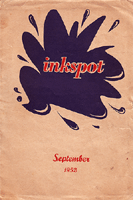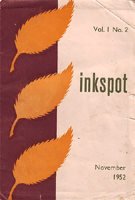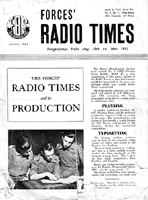

RAOC No. 1 GHQ PRINTING PRESS, FAYID 1951-53
As Remembered By Bernard Calvert
I was called up to do my National Service on 21st June 1951. I reported to Parsons Barracks, Aldershot which was the Selection Battalion of the RAOC. After two weeks I was selected to train as a clerk and posted to Blackdown Camp. After ten weeks training and two weeks embarkation leave, I was posted to the Canal Zone, sailing on the Empire Medway. I landed on November 5th when the troubles were at their height. After a lot of problems landing and sleeping in the open air for a couple of nights, a call came over the radio asking for volunteers to work at the GHQ Printing Press, Fayid because all the Egyptians who had worked there had cleared off. Being a printer, I went for it and spent the rest of my army days at GHQ Print Press. During my time there I had two delightful breaks – a fortnights stay at the Golden Sands Leave Camp at Famagusta, Cyprus and another at a camp in Port Said. I returned home by air on Coronation Day (2nd June 1953).
 |
 |
"Inkspot" was first produced in September 1952. Giving the 'would-be' amateur journalist the sctope to write on a varied range of articles, short stories,news, sports or any other subject that they believe have been overlooked. Produced by personnel under training at No.1 GHQ Printing Press. Editor was Sgt Noakes
PRODUCING YOUR RADIO TIMES
 |
The Forces Broadcasting Service have invited No. 1 GHQ Printing
Press, RAOC, MELF 17, to take prominence in this week’s edition of
The Radio Times, as they feel listeners would be interested in the processes
through which your weekly Radio Times is produced.
All programmes and copy are compiled and edited by J/T Wilkinson and |
|
Mechanical composition Pte Morton operating a Linotype |
PLANNING
|
|
Pte Edwards at work on the plates and blocks |
TYPESETTING
|
|
Cpl Fisher & Pte Withers trimming finished copies of The Radio Times |
PRINTING |
Pte Griffiths making final adjustments before printing commences |
Once the printing is finished, the sheets are then taken into the Binding
Dept, There it is then – a very brief description of the work entailed
in the production |